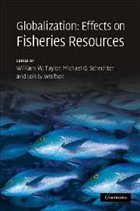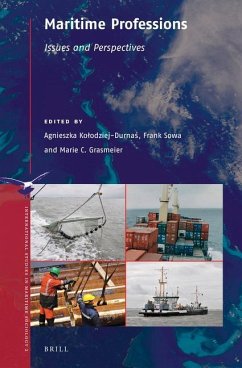Nicht lieferbar

Globalization: Effects on Fisheries Resources
Versandkostenfrei!
Nicht lieferbar
Globalization is a multidimensional issue, and its impacts on world resources cross and integrate environmental, economic, political and cultural boundaries. Over the last few decades, the push towards globalization has brought a new dimension in which managers of fisheries and water resources will need to operate; both at the local and global level of governance. In order to effectively address the future sustainability of these resources, it is critical to understand the driving factors of globalization and their effect on fisheries ecosystems and the people who depend on these resources for...
Globalization is a multidimensional issue, and its impacts on world resources cross and integrate environmental, economic, political and cultural boundaries. Over the last few decades, the push towards globalization has brought a new dimension in which managers of fisheries and water resources will need to operate; both at the local and global level of governance. In order to effectively address the future sustainability of these resources, it is critical to understand the driving factors of globalization and their effect on fisheries ecosystems and the people who depend on these resources for their cultural and societal well being. This book discusses the social and political changes affecting fisheries, the changes to ecological processes due to direct and indirect impacts of globalization, the changing nature of the goods and services that fisheries ecosystems are able to provide, and the resultant changes in markets and economic assessment of our fishery resources.













